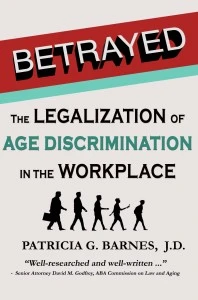 A federal appeals court panel has unanimously ruled that firing a woman because she is lactating or expressing milk is unlawful sex discrimination under Title VII of the Civil Rights Act of 1964.
A federal appeals court panel has unanimously ruled that firing a woman because she is lactating or expressing milk is unlawful sex discrimination under Title VII of the Civil Rights Act of 1964.
The decision by the U.S. Court of Appeals for the Fifth Circuit in Houston, TX, overturns a somewhat notorious ruling last year by U.S. District Judge Lynn N. Hughes, also of Houston.
Judge Hughes ruled that federal law did not prevent Houston Funding II, L.L.C., from firing a new mother because she asked for permission to pump breast milk in a back office after she returned to the job. He concluded that “lactation is not pregnancy, childbirth, or a related medical condition”. and thus “firing someone because of lactation or breast-pumping is not sex discrimination.”
Houston Funding had argued Title VII does not cover “breast pump discrimination” and filed a motion for summary judgment, which was granted by Judge Hughes.
The dismissal was appealed by the U.S. Equal Employment Opportunity Commission (EEOC), which had filed the lawsuit on behalf of the employee, Donnicia Venters, who gave birth to a baby girl in 2008.
The Fifth Circuit ruled that Title VII (as amended by the Pregnancy Discrimination Act of 1978) protects working women against discrimination on the basis of pregnancy, childbirth or a related medical condition. The appeals court ruled:
“Lactation is the physiological process of secreting milk from mammary glands and is directly caused by hormonal changes associated with pregnancy and childbirth … It is undisputed in this appeal that lactation is a physiological result of being pregnant and bearing a child.”
The court reasoned that firing a woman because she is lactating or expressing milk is unlawful sex discrimination, since men as a matter of biology could not be fired for such a reason.
The case was remanded back to the lower court for a trial on the merits.
David Lopez, General Counsel of the EEOC, said, “We are gratified that the Fifth Circuit gave plain meaning to the words of the Pregnancy Discrimination Act and ruled in our favor that discrimination on the basis of lactation is discrimination on the basis of sex.”
The EEOC looks forward to trying the case, according to Jim Sacher, regional attorney in the EEOC’s Houston District Office, which brought the initial litigation. “We hope this litigation sends a message to other women that discrimination based on pregnancy, childbirth and related conditions is against the law and that the EEOC is here to help,” he said.
One of the six national priorities identified by the Commission’s Strategic Enforcement Plan is to address emerging and developing issues in equal employment law, including issues involving pregnancy-related limitations.
According to the website www.houstonfunding.com, Houston Funding “is a company which purchases charged-off debt portfolios nationwide from most large institutions.”

 Why isn’t sexual harassment a crime in the United States?
Why isn’t sexual harassment a crime in the United States?


